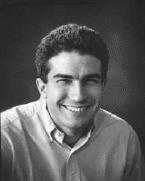
The geometric theory of control for mechanical systems has reached a quite mature state, as is evidenced by the recent appearance several monographs on the topic. The workshop is an outgrowth of a book written by the organizers. The primary emphasis of this workshop is the modeling, analysis, and control of mechanical systems. The methods and results presented can be applied to a large class of mechanical control systems, including applications in robotics, autonomous vehicle control, and multi-body systems. The workshop presents a unified treatment of parts of control theory for mechanical systems. A distinctive feature of the presentation is its reliance on techniques from differential and Riemannian geometry. This workshop will outline the areas of overlap between geometric mechanics and control theory for mechanical systems. Liberal use of examples form an integral part of the presentation. The workshop begins with mathematical background, motivated through innovative approaches to physical modeling, analysis, and design techniques.
The following describes the target audience for the workshop.
[Confirmed speakers]
[Workshop schedule]
[Course material]
Confirmed speakers

|
Francesco Bullo received the Laurea degree ``summa cum laude'' in Electrical Engineering from the University of Padova, Italy, in 1994, and the Ph.D. degree in Control and Dynamical Systems from the California Institute of Technology in 1999. From 1998-2004 he was an Assistant Professor with the Coordinated Science Laboratory at the University of Illinois at Urbana-Champaign. He is currently an Associate Professor with the Mechanical & Environmental Engineering Department at the University of California, Santa Barbara. His research interests include motion planning and coordination for autonomous vehicles, and geometric control of mechanical systems. |

|
Jorge Cortés received the Licenciatura degree in mathematics from the Universidad de Zaragoza, Spain, in 1997, and the Ph.D. degree in engineering mathematics from the Universidad Carlos III de Madrid, Spain, in 2001. From January to June 2002, he held a postdoctoral position at the Systems, Signals and Control Department of the University of Twente. He is currently a Postdoctoral Research Associate at the Coordinated Science Laboratory of the University of Illinois at Urbana-Champaign. His current research interests focus on mathematical control theory and geometric integration, with a special emphasis on Lagrangian and Hamiltonian systems and the role of symmetry principles, and motion coordination algorithms for groups of autonomous vehicles. |

|
Andrew Lewis received his undergraduate degree in Mechanical Engineering from the University of New Brunswick in 1987, and his MSc and PhD in 1988 and 1995, respectively, both in Applied Mechanics from the California Institute of Technology. From 1995-1996 he was a Postdoctoral Fellow in Control and Dynamical Systems at the California Institute of Technology, and from 1996-1998 he was a Postdoctoral Fellow in the Mathematics Department at the University of Warwick. He is now an Associate Professor in the Mathematics and Statistics Department at Queen's University in Kingston, Ontario in Canada. His research interests include geometric mechanics and differential geometric control theory. |

|
Sonia Martínez received the Licenciatura degree in mathematics from the Universidad de Zaragoza, Zaragoza, Spain, in June, and the Ph.D. degree in engineering mathematics from the Universidad Carlos III de Madrid, Madrid, Spain, in 2002. From September 2002 to September 2003, she held a postdoctoral position at Department of Applied Mathematics IV of the Universidad Politecnica de Catalunya. From October 2003, she is a Postdoctoral Fulbright Fellow at the Coordinated Science Laboratory of the University of Illinois at Urbana-Champaign. Her current research interests include optimal control policies for robotic locomotion, controllability analysis and motion planning for underactuated systems, and low-complexity representations of mechanical systems. |
Workshop schedule
The workshop is scheduled for a full day. The following timetable is subject
to change, but the list of topics will roughly be correct.
| Time | Topic | Speaker |
| Morning (½ hour) | Problem descriptions and motivation | Andrew D. Lewis |
| Morning (3 hours) | Geometric modeling | Andrew D. Lewis |
| Afternoon (1 hour) | Controllability | Francesco Bullo |
| Afternoon (1 hour) | Kinematic reduction and motion planning | Francesco Bullo |
| Afternoon (1 hour) | Perturbation methods and oscillatory stabilization | Sonia Martínez and Jorge Cortés |
| Afternoon (½ hour) | Open questions | Organizers |